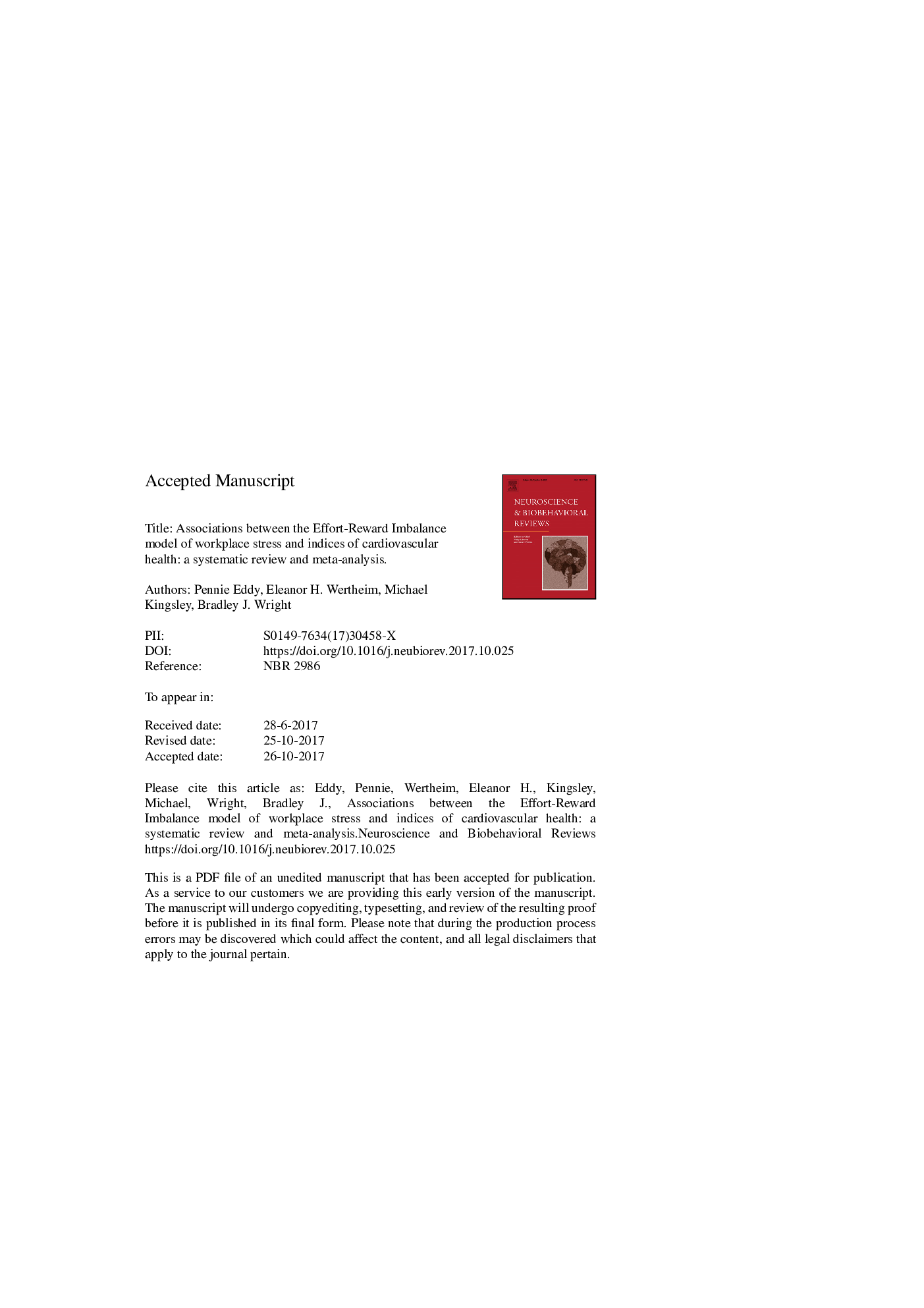| Article ID | Journal | Published Year | Pages | File Type |
|---|---|---|---|---|
| 7302280 | Neuroscience & Biobehavioral Reviews | 2017 | 49 Pages |
Abstract
Work stress can increase the risk of cardiovascular disease by 50%, with increasing research focusing on the underlying mechanisms responsible for these associations. Our meta-analysis assessed the associations of the effort-reward imbalance (ERI) workplace stress model with indices of cardiovascular disease. The search term 'effort*reward*imbalance' produced 22 papers (129 associations, N = 93,817) meeting inclusion criteria. Greater ERI was most associated with increased hypertension (r = 0.26, p < 0.001, N = 1180), intima media thickness (r = 0.23, p < .001, N = 828) and fibrinogen (r = 0.13, p = 0.03, N = 4315). Trait over-commitment was most associated with increased hypertension (r = 0.24, p =0.02, N = 899) and intima media thickness (r = 0.19, p = 0.02, N = 828). Interventions aimed at reducing the impact of ERI and over-commitment on cardiovascular disease should consider concurrently assessing changes in physiological markers of cardiovascular disease.
Keywords
DBPIMTAMBHDLCHDPNN50RMSSDSBPSDNNJDCHRVAmbulatoryWorkplace stresscoronary heart diseasecardiovascular diseaseTriglyceridesCVDbody mass indexBMIintima media thicknessHeart-ratediastolic blood pressuresystolic blood pressuremean arterial pressureBlood pressureFibrinogenPhysiologylow density lipoproteinsLDLhigh density lipoproteinsERImapheart rate variabilitycholesteroltotal cholesterol
Related Topics
Life Sciences
Neuroscience
Behavioral Neuroscience
Authors
Pennie Eddy, Eleanor H. Wertheim, Michael Kingsley, Bradley J. Wright,
